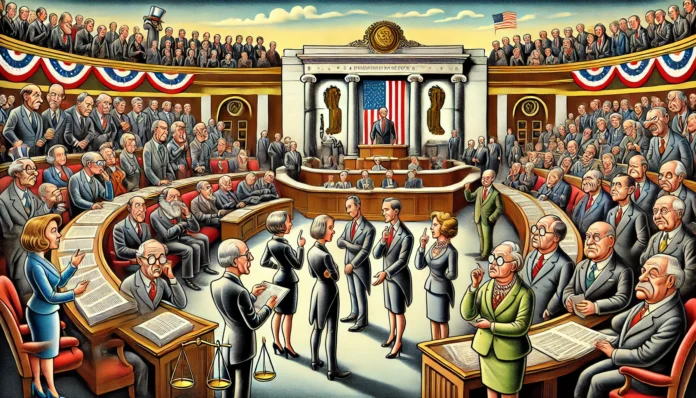Atheists in Politics: Breaking Barriers and Facing Backlash
In recent years, the landscape of American politics has begun to shift as a growing number of openly Atheist candidates and officials step into the public arena. Once considered a political taboo, Atheism is now finding a voice in government, challenging long-standing prejudices and advocating for the rights of secular voters. This article explores the rise of Atheists in politics, the barriers they are breaking, the backlash they often face, and why their representation matters more than ever in 2025.
The Rise of Open Atheists in American Politics
For decades, religious affiliation—or at least the appearance of it—was seen as a prerequisite for political success in the United States. However, recent years have seen a slow but steady increase in the number of politicians who openly identify as Atheist, Agnostic, or non-religious. According to the 2025 State of the Secular States report by American Atheists, there is a growing movement of secular Americans demanding representation and policy that reflects the country’s religious diversity—including those who choose no religion at all.
Notable figures such as Rep. Jared Huffman (D-CA), who publicly identifies as a humanist and is a founding member of the Congressional Freethought Caucus, have paved the way for others to be open about their beliefs. Other politicians, like Arizona State Rep. Athena Salman and Colorado State Rep. Brianna Titone, have also spoken openly about their secular worldviews, challenging the notion that faith is a prerequisite for public service.
Breaking Barriers: Why Representation Matters
The presence of openly Atheist politicians is more than a symbolic victory; it has real implications for policy and representation. Secular voters—who now make up a significant portion of the electorate—have long been underrepresented in government. According to a 2024 study published in PsyPost, Americans are increasingly open to the idea of Atheist politicians, with younger generations leading the way in rejecting religious tests for public office.
Representation matters because it ensures that the concerns of secular Americans are heard. Issues such as the separation of church and state, science-based policy, and religious freedom for all—including the freedom not to believe—are championed by Atheist and secular lawmakers. Their presence in government helps to counterbalance the influence of religious special interests and ensures that public policy is grounded in reason and evidence rather than dogma.
Facing Backlash: The Cost of Being Openly Atheist
Despite these advances, openly Atheist politicians still face significant challenges. The stigma attached to Atheism remains strong in many parts of the country, and candidates often encounter hostility, misinformation, and even threats. The NewsNation coverage of religious unbelievers in U.S. politics highlights the unique hurdles faced by non-religious candidates, including smear campaigns and accusations of being unpatriotic or immoral.
For example, Rep. Huffman has spoken publicly about the hate mail and criticism he receives for his secular views. Similarly, local and state-level candidates have reported being targeted by religious groups and facing questions about their values and fitness for office. In some cases, Atheist candidates have been pressured to downplay or hide their beliefs to avoid alienating voters.
The Impact of Christian Nationalism and the Fight for Secularism
The rise of Christian nationalism in American politics has made the fight for secular representation even more urgent. The 2025 State of the Secular States report documents the increasing influence of religious ideology on public policy, from attempts to undermine reproductive rights to efforts to insert prayer and religious instruction into public schools.
Atheist politicians and their allies are often on the front lines of these battles, advocating for the constitutional principle of church-state separation. Their work is crucial in defending the rights of all Americans—religious and non-religious alike—to live free from government-imposed religion.
Changing Attitudes: Is America Ready for Atheist Leaders?
While challenges remain, there are signs that public attitudes are shifting. The PsyPost study found that a majority of Americans now say they would vote for a qualified Atheist candidate, a dramatic change from previous decades. Younger voters, in particular, are less likely to see religious belief as a necessary qualification for leadership.
This shift is reflected in the growing number of secular advocacy organizations, such as the Secular Coalition for America and American Humanist Association, which support Atheist and non-religious candidates and work to promote secular values in public life.
Why Atheist Representation Matters for Secular Voters
For secular voters, the presence of Atheist politicians is about more than identity—it’s about ensuring that government reflects the diversity of beliefs in American society. Policies on science education, reproductive rights, LGBTQ+ equality, and religious freedom are all impacted by the religious or secular perspectives of lawmakers.
Atheist representation helps to break down stereotypes and challenge the narrative that morality and patriotism are tied to religious belief. It also provides role models for young people who may feel isolated or marginalized because of their lack of faith. As more Atheists enter public life, they help to normalize secularism and demonstrate that non-believers can be effective, ethical, and compassionate leaders.
Looking Ahead: The Future of Secular Politics
The path forward for Atheists in politics is not without obstacles, but the progress made in recent years is undeniable. As more candidates and officials come out as Atheist or non-religious, they are helping to create a more inclusive and representative democracy. Their courage in the face of backlash is inspiring a new generation of secular Americans to get involved and make their voices heard.
With continued advocacy, changing public attitudes, and the support of secular organizations, the future looks brighter for Atheists in politics. As the movement grows, it promises to bring new perspectives, champion evidence-based policy, and ensure that the rights of all Americans—regardless of belief—are protected.

